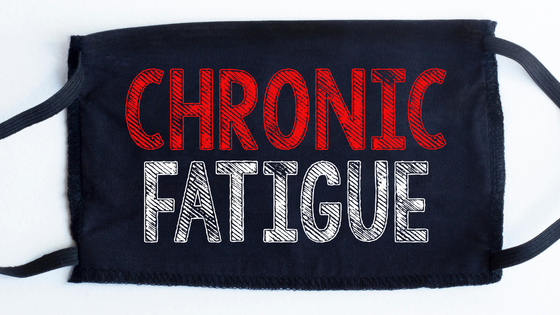Introduction
Have you ever noticed your autoimmune symptoms flaring up just as a storm rolls in? You’re not alone. According to recent studies, nearly 60% of individuals with autoimmune disease report experiencing increased symptom severity during adverse weather conditions.
Did you know 60% of people with autoimmune diseases report worse symptoms during storms? Learn how to manage weather-related flares effectively. 🌩️ #AutoimmuneHealth #WeatherAndHealth #HEALCoach Share on XAs an autoimmune AIP coach, I’ve seen firsthand how weather changes, especially storms, can wreak havoc on those of us living with autoimmune disease. The connection between weather and our health is a topic of growing interest, with more and more people sharing their experiences of worsening symptoms when the skies darken, and the barometric pressure drops.
In this post, I’ll explore the complex relationship between storms and autoimmune disease flares. We’ll dive into the science behind why weather changes can trigger flare-ups and discuss practical strategies for managing symptoms when the forecast looks stormy. Whether you’re new to this topic or have been tracking your symptoms for years, I hope this post provides valuable insights and support.
Living with an autoimmune disease is challenging enough without the added unpredictability of weather-related flares. By understanding the factors at play and learning how to better manage our health during storms, we can take proactive steps toward a more stable and comfortable life. So, let’s weather this storm together and uncover the ways we can find relief and resilience in the face of nature’s challenges.
Understanding Autoimmune Diseases
Definition and Types
Autoimmune disease occurs when the body’s immune system mistakenly attacks its own tissues, believing them to be foreign invaders. This self-destructive process can affect various parts of the body, leading to a wide range of symptoms and health issues. There are over 80 different types of autoimmune diseases, each with its own unique characteristics and challenges.
Some of the most common autoimmune diseases include:
- Rheumatoid Arthritis (RA): Affects the joints, causing pain, swelling, and stiffness.
- Lupus (Systemic Lupus Erythematosus, SLE): Can impact multiple organs, including the skin, kidneys, and brain, leading to widespread inflammation and damage.
- Multiple Sclerosis (MS): Targets the central nervous system, disrupting communication between the brain and the rest of the body, resulting in symptoms like fatigue, difficulty walking, and cognitive issues.
- Type 1 Diabetes: Destroys insulin-producing cells in the pancreas, leading to high blood sugar levels and requiring lifelong insulin management.
- Celiac Disease: An immune reaction to eating gluten, which damages the small intestine and interferes with nutrient absorption.
Symptoms and Flares
The symptoms of autoimmune disease can vary widely depending on the specific condition and the areas of the body affected. However, common symptoms often include:
- Chronic fatigue
- Joint pain and swelling
- Skin rashes
- Digestive issues
- Fever
- Difficulty concentrating or “brain fog”
Flares, or flare-ups, are periods when symptoms become more severe or new symptoms appear. These can be triggered by various factors, including stress, infections, certain foods, and, as we’ll explore in this post, changes in the weather.
Prevalence
Autoimmune diseases are more common than many people realize, affecting millions of people worldwide. According to the American Autoimmune Related Diseases Association (AARDA), around 50 million Americans have an autoimmune disease. Women are disproportionately affected, with about 75% of autoimmune disease patients being female. These conditions can develop at any age but are often diagnosed in young to middle-aged adults.
Understanding the basics of autoimmune disease is crucial for recognizing how external factors, such as weather, can influence our health. By gaining a clearer picture of what these diseases entail, we can better appreciate the challenges faced by those living with them and the importance of effective management strategies.
Weather and Health
General Impact of Weather on Health
Weather affects our health in many ways, influencing everything from our mood to our physical well-being. Shifts in temperature, humidity, and barometric pressure can have profound effects on our bodies. For instance, extreme heat can lead to dehydration and heatstroke, while cold weather can exacerbate conditions like arthritis and respiratory issues. Seasonal changes also impact mental health, with some people experiencing Seasonal Affective Disorder (SAD) during the darker, colder months.
Scientific Theories
Several scientific theories attempt to explain why weather changes can impact health:
- Barometric Pressure: Changes in barometric pressure, which often accompany storms, can influence joint pain and inflammation. When the pressure drops, tissues in the body can expand, leading to increased pain and discomfort, particularly in individuals with conditions like arthritis and fibromyalgia.
- Humidity and Temperature: High humidity can make it harder for the body to cool down, leading to overheating and dehydration. Conversely, cold, dry air can irritate respiratory systems and exacerbate conditions like asthma and bronchitis. Rapid temperature changes can stress the body, triggering symptoms in those with chronic conditions.
- Allergens and Pollutants: Storms and changes in weather can stir up allergens and pollutants, increasing exposure to irritants that can trigger asthma, allergies, and other respiratory conditions. Pollen counts often rise with warmer weather, while mold and dust mites thrive in humid conditions.
- Psychological Stress: Weather changes, particularly severe weather events like storms, can cause psychological stress. Anxiety and stress have been shown to weaken the immune system and worsen symptoms in autoimmune diseases. The anticipation of a storm and the disruption it causes can heighten stress levels, potentially triggering a flare.
- Vitamin D Levels: Sunlight exposure is essential for vitamin D production, which plays a role in immune function. During winter months or prolonged periods of cloudy weather, reduced sunlight can lead to lower vitamin D levels, potentially impacting the immune system’s ability to regulate itself effectively.
Understanding these theories helps us appreciate the complex ways weather can influence our health. For those with autoimmune disease, these impacts can be more pronounced, making it essential to recognize and manage the factors that contribute to weather-related flares.
Storms and Autoimmune Disease Flares
Barometric Pressure Changes
Storms can significantly exacerbate autoimmune disease flares primarily through shifts in barometric pressure. As a storm approaches and the pressure drops, individuals with autoimmune conditions often experience a noticeable increase in pain and inflammation. This is because the lower air pressure allows body tissues to expand, leading to heightened joint pain and discomfort. This effect is particularly pronounced in diseases like rheumatoid arthritis and lupus, where joint pain and inflammation are common symptoms.
Research supports this observation, linking lower barometric pressure with increased reports of pain in those with chronic pain conditions. For those of us managing autoimmune disease, these changes can lead to more frequent or intense flare-ups during stormy weather. Beyond the physical pain, the discomfort can also exacerbate fatigue and a general feeling of unwellness, making daily activities more challenging and affecting overall quality of life.
Humidity and Temperature Fluctuations
Storms often bring significant changes in humidity and temperature, which can also affect autoimmune disease symptoms. High humidity can exacerbate symptoms in conditions like multiple sclerosis and lupus, where heat intolerance is a common issue. The body’s ability to regulate temperature is compromised in these conditions, and high humidity can make it even more difficult to stay cool, leading to increased fatigue and other symptoms.
Conversely, the drop in temperature that often accompanies storms can lead to stiffness and increased pain in the joints and muscles. Cold, damp weather is known to worsen symptoms in many autoimmune conditions, as it can increase inflammation and reduce circulation. These rapid changes in temperature and humidity can be particularly challenging for those with autoimmune disease, as the body struggles to adapt to the fluctuating conditions.
Psychological Stress
The psychological impact of storms should not be underestimated when considering their effect on autoimmune disease flares. Storms can be stressful events, causing anxiety and disrupting routines. The anticipation of a storm, with its potential for damage and power outages, can heighten stress levels. For those with autoimmune disease, this stress can trigger or worsen flares.
Stress has a well-documented effect on the immune system. It can lead to increased inflammation and a heightened immune response, both of which can exacerbate autoimmune disease symptoms. During a storm, the combination of physical discomfort from weather changes and psychological stress can create a perfect storm for a flare-up. It’s essential to recognize this connection and develop strategies to manage stress during these times to help mitigate its impact on our health.
Scientific Studies and Evidence
Studies have demonstrated that weather conditions can significantly impact chronic pain and autoimmune disease symptoms. Many individuals with chronic pain conditions report increased pain levels during periods of lower barometric pressure and higher humidity. Similarly, patients with rheumatoid arthritis often experience heightened pain and stiffness during times of high humidity and low temperatures. These observations align with numerous anecdotal reports from people with autoimmune diseases who notice a clear pattern of worsening symptoms during stormy weather.
Understanding these connections helps in managing and predicting symptom flares, providing relief for many who suffer from weather-related pain. By paying attention to weather forecasts and making appropriate lifestyle adjustments, individuals with chronic pain and autoimmune conditions can better manage their symptoms and improve their overall quality of life.
Studies have shown that weather conditions can worsen chronic pain and autoimmune disease symptoms. High humidity and low barometric pressure are linked to increased pain levels, aligning with many anecdotal reports.🌧️🌡️ #ChronicPain… Share on XCoping Strategies During Storms
Preventive Measures
- Monitor the Weather: Stay informed about upcoming weather changes by regularly checking weather forecasts. Knowing when a storm is approaching allows you to prepare in advance. Use weather apps that provide real-time updates and alerts for your specific location.
- Maintain a Symptom Journal: Keep track of your symptoms in relation to weather changes. This can help you identify patterns and predict when a flare might occur. Documenting your experiences can also provide valuable information for your healthcare provider.
- Adjust Your Environment: Prepare your home to minimize the impact of weather changes. Use humidifiers or dehumidifiers to maintain a comfortable indoor humidity level. Ensure your living space is well-insulated to avoid drafts and sudden temperature changes.
Medication and Treatment
- Consult with Your Healthcare Provider: Discuss your symptoms and weather-related flares with your healthcare provider. They may adjust your medication or treatment plan to better manage your symptoms during stormy weather. This might include increasing anti-inflammatory medications or adjusting dosages.
- Pain Management Techniques: Utilize various pain management strategies to alleviate discomfort during storms. Over-the-counter pain relievers, prescribed medications, and topical treatments can provide relief. Additionally, consider physical therapies such as massage, acupuncture, or chiropractic care.
- Stay Hydrated: Proper hydration is crucial for maintaining overall health and can help reduce the severity of symptoms during weather changes. Drink plenty of water and avoid excessive caffeine and alcohol, which can contribute to dehydration.
Lifestyle Adjustments
- Stay Active: Regular physical activity can help manage symptoms and improve overall well-being. Engage in low-impact exercises such as yoga, swimming, or walking, which are gentle on the joints and muscles. During storms, consider indoor activities to stay active without exposing yourself to harsh weather conditions.
- Practice Stress-Relief Techniques: Stress can exacerbate autoimmune disease symptoms, so it’s important to find ways to relax and reduce anxiety. Techniques such as deep breathing exercises, meditation, and mindfulness can help manage stress levels. Activities like reading, listening to music, or engaging in a hobby can also provide mental relief.
- Get Adequate Rest: Ensure you get enough sleep, as rest is essential for the body’s healing and immune function. Create a calming bedtime routine and maintain a consistent sleep schedule. During stormy weather, prioritize rest and listen to your body’s needs.
Dietary Considerations
- Anti-Inflammatory Diet: Follow a diet rich in anti-inflammatory foods to help manage symptoms. Include plenty of fruits, vegetables, lean proteins, and healthy fats in your meals. Foods such as berries, leafy greens, fatty fish, nuts, and seeds can help reduce inflammation.
- Avoid Triggers: Identify and avoid foods that may trigger inflammation or exacerbate symptoms. Common triggers include processed foods, refined sugars, and trans fats. Keeping a food diary can help you pinpoint specific dietary triggers.
- Stay Balanced: Maintain a balanced diet and avoid drastic changes that could stress your body. Ensure you’re getting adequate nutrients to support your overall health and immune function.
Support Systems
- Join Support Groups: Connect with others who understand what you’re going through by joining support groups, either in-person or online. Sharing experiences and coping strategies can provide emotional support and practical advice.
- Communicate with Loved Ones: Inform family and friends about how storms affect your condition so they can provide support and understanding. Having a strong support network can make it easier to manage symptoms during challenging times.
- Seek Professional Help: Don’t hesitate to seek professional counseling or therapy if you’re struggling with the psychological impact of weather-related flares. A mental health professional can help you develop coping strategies and provide support.
Emergency Preparedness
- Create an Emergency Plan: Have a plan in place for severe weather events. Ensure you have essential supplies, such as medications, water, non-perishable food, and medical equipment. Know where to seek shelter if necessary.
- Stay Connected: Keep a list of emergency contacts, including healthcare providers, family members, and local emergency services. Ensure you have a way to charge your phone and other essential devices.
- Backup Medications: Always have an extra supply of your medications on hand in case of emergencies. Keep them in a waterproof container to protect them from damage.
By implementing these coping strategies, you can better manage your autoimmune disease symptoms during storms. While weather changes are beyond our control, taking proactive steps to prepare and care for ourselves can significantly reduce the impact of storms on our health. Remember, it’s essential to work closely with your healthcare provider to develop a personalized plan that addresses your specific needs.
Final Thoughts

Living with an autoimmune disease presents unique challenges, particularly during stormy weather when symptoms can flare up unexpectedly. By understanding the connection between weather changes and autoimmune flares, you can take proactive steps to manage your health more effectively. From monitoring weather forecasts and adjusting your environment to implementing stress-relief techniques and maintaining a supportive community, there are many strategies to help you navigate these challenges.
Remember, managing an autoimmune disease is a journey that requires ongoing adaptation and self-care. By staying informed, working closely with your healthcare provider, and leaning on your support network, you can improve your quality of life and find resilience even in the face of unpredictable weather.
Call to Action
If you found this information helpful, I encourage you to take the next step in managing your autoimmune disease. Subscribe to my newsletter for regular updates, tips, and resources tailored to those living with autoimmune conditions. Additionally, consider joining my community of individuals who share similar experiences and challenges. Together, we can learn, grow, and support each other on this journey toward better health and well-being.
Don’t let stormy weather dictate your life. Take control of your health today and equip yourself with the knowledge and tools you need to thrive, no matter what the forecast holds.
If you are looking for more tips and support, join me over on my group page, The Village – A Natural HEALing Community, to get tons of information and tips to help you take your HEALTHY EATING and ACTIVE LIVING to the next level.
REFERENCES:
- Pain and Weather: An Analysis of the Relationship Between Meteorological Factors and Chronic Pain – Pain Journal.
- Environmental Influences on Autoimmune Disease – Nature Reviews Rheumatology.
- Available at: https://www.nature.com/articles/nrrheum.2016.100
- Lupus and Climate: The Influence of Environmental Factors on Autoimmune Diseases –
- Arthritis Care & Research.
- Weather and Multiple Sclerosis: A Case Study Approach – Clinical Rheumatology.
MORE RELATED POSTS:












+leave a comment . . .